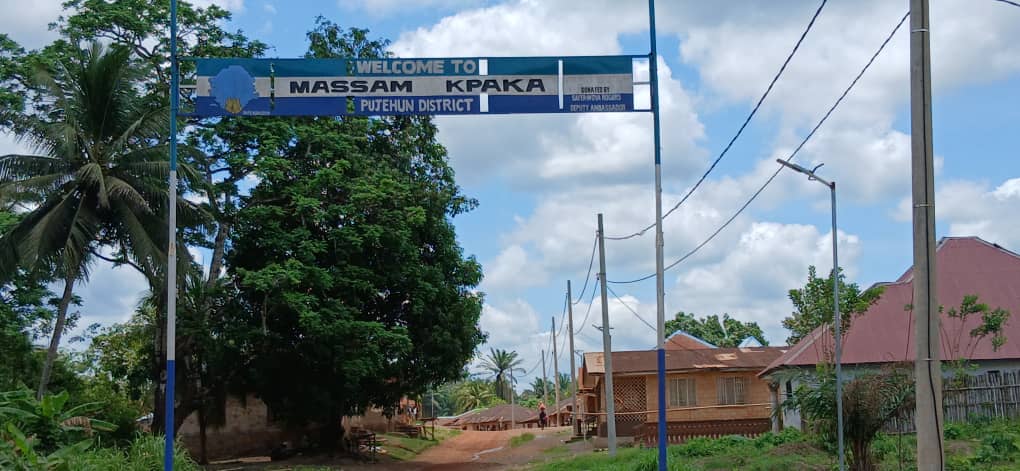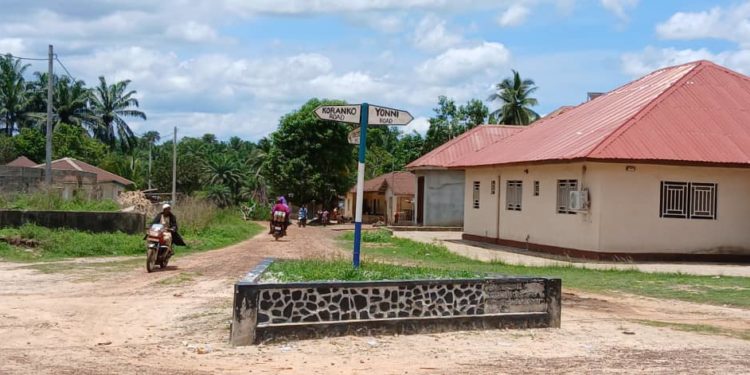By Brima Sannoh
Despite the passage of landmark gender laws and ongoing efforts to curb gender-based violence, domestic abuse remains a persistent and deeply rooted issue for women in Sierra Leone, particularly in rural districts like Pujehun.
According to the 2019 Sierra Leone Demographic and Health Survey (SLDHS), an alarming 62% of women aged 15–49 reported experiencing physical or sexual violence, mostly at the hands of intimate partners. These figures have only worsened in the aftermath of the COVID-19 pandemic, which exposed and exacerbated existing vulnerabilities across the country.
In 2023, the Sierra Leone Police recorded more than 10,000 cases of crimes against women and girls. Of these, nearly 8,000 were classified as domestic violence. Despite an overall decline in crime nationwide, the Family Support Unit (FSU) has noted a concerning 1.4% increase in offences against women and children this year alone.
In Pujehun District, this trend has reached troubling levels. “Since I took over two years ago, my department has been receiving cases of domestic violence on a daily basis,” said Detective Inspector Momoh Musa Gbah, Head of the FSU in Pujehun Town. “It’s become routine, almost expected, which is a serious burden on our efforts to fight the crime.” Inspector Gbah described a wide spectrum of abuses reported to his unit, including physical, sexual, verbal, economic, and psychological violence. The majority of victims, he said, are women, many of whom face pressure not to pursue legal action or lack the evidence necessary to seek justice.
Beyond physical harm, the mental and emotional toll is also grave. “We are seeing young women suffer from trauma and depression caused by toxic relationships,” Gbah added. “This should concern every citizen of this country.”
Meanwhile, two women in Pujehun, Hawa Koroma and Martha Sovula, shared harrowing personal stories of domestic abuse. Hawa, 25, has endured years of physical and emotional abuse from her husband, who, she says, has ostracised her due to their inability to conceive. “It’s been three years since he last slept in our home,” she said, tears streaming down her face. “He’s blamed me for everything. I just want my life back.”
Martha, a mother of two, lives in Gobaru Town and now supports her children alone after her husband abdicated his responsibilities. “When I ask him for money for food, he insults me,” she said. “This relationship is sinking me. I pray other women learn from my experience.”
However, despite legislation such as the 2007 Domestic Violence Act and the more recent 2022 Gender Equality and Women’s Empowerment (GEWE) Act, implementation remains a major hurdle. While the laws provide a framework for punishment and protection, the lived experiences of many women suggest that these protections are often out of reach.
The issue is further compounded by lingering societal norms that normalise silence, particularly in traditional settings like Pujehun. Women Of Wanjama (WOW), a local advocacy group, has been vocal about the urgency of addressing the crisis.
“It’s not enough to have laws on paper,” said Josephine Sowa, WOW’s district chairperson. “The rate at which women in Pujehun are suffering is unacceptable. We need action, not just promises. Everyone, from the police to the courts to community leaders, must take responsibility.”

Decades ago, the Truth and Reconciliation Commission (TRC) warned of the dangers of systemic violence against women, recommending the harmonisation of customary and statutory laws, free psycho-social support, and the ratification of international protocols. Yet, two decades on, many of those recommendations remain unfulfilled.
Domestic violence in Sierra Leone is not just a legal issue, it is a social, cultural, and humanitarian crisis. But with each survivor who speaks out, and with each advocate who presses for change, hope continues to soar. The path to justice may be long, but it is not without light.
This story was produced with support from the African Transitional Justice Legacy Fund (ATJLF), through the Media Reform Coordinating Group (MRCG), under the project “Engaging Media and Communities to Change the Narrative on Transitional Justice Issues in Sierra Leone.”






















